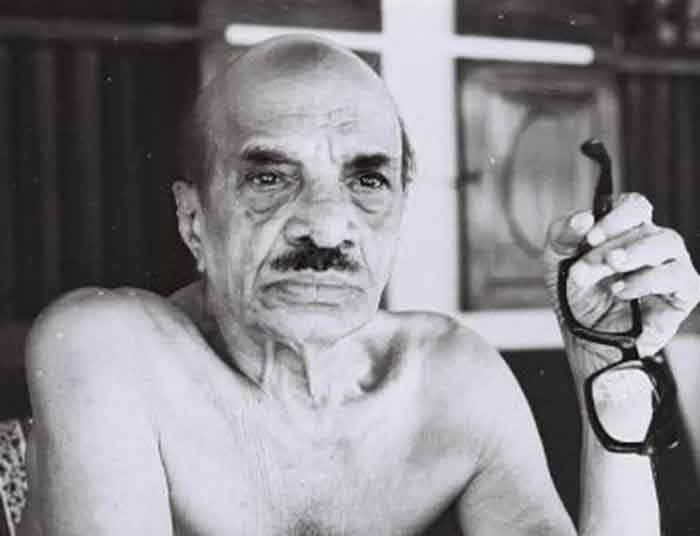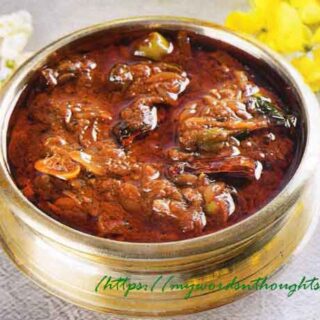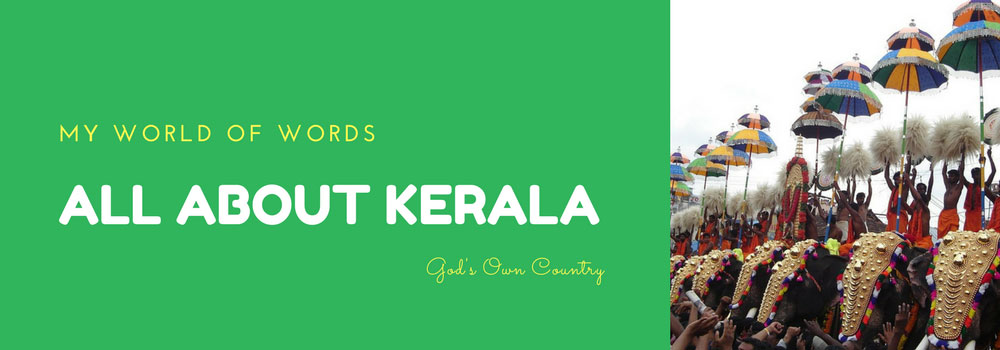Vaikom Muhammad Basheer – A Luminary of Our Renaissance
Basheer is one of the prominent figures among the storytellers of our renaissance era. With his simple and humorous language, our very own Vaikom Muhammad Basheer could make us laugh and cry. Compared to other writers, Basheer always stood apart with his unique writing style. There is hardly a Malayali who hasn’t enjoyed the humour-laced stories written by him. The way he infused humour into simple stories make him a genius. Basheer and his literature are an inseparable part of Malayalam literature. One of the most celebrated and influential writers in Malayalam literature, Basheer was fondly known as the Beypore Sultan.
Basheer always used the common man’s conversational language in his writings. This eventually evolved into a distinctive style that became characteristic of his stories. It must be said that this great writer succeeded in making us laugh and think through his humour. A sentence like, “My great-great-grandfather had a royal elephant” in standard Malayalam would, in Basheer’s language, become “nte uppuppākkoru ānēyundāyirunnu.” Even such simple Malayalam sentences, when transformed into Basheer’s language, gave birth to a new literary style. Malayalis unanimously welcomed it with open arms. Without a doubt, Basheer will always remain one of the most beloved writers of the Malayali people.

Bashir’s life and major works
He was born on January 21, 1908, in Thalayolaparambu, a village in the Vaikom taluk of Kottayam district. After completing basic education, he left his hometown and moved to Kozhikode. There, he became involved in the freedom struggle and was imprisoned multiple times.
He gifted Malayalam literature with many beloved novels such as Premalekhanam, Balyakalasakhi, Pathummayude Aadu, Ntuppuppakkoranendaarnu, Shabdangal, Manthrikapoocha, Aanavaariyum Ponkurishum, Thara Special, Mathilukal, Jeevithanizhal Paadukal, and Anuraagathinte Dinangal.
He also wrote several renowned short stories including Vishappu, Vishwavikhyaathamaaya Mookku, and Shinkidi Mungan. Katha Beejam is one of his plays, and Ormmayude Arakal is his autobiography. It was his sharp and intense life experiences that shaped Basheer into a powerful storyteller. The great storyteller bid farewell to the world on July 5, 1994.
Pathummayude Aadu (Pathumma’s Goat)
In Pathummayude Aadu, Vaikom Muhammad Basheer humorously presents some of the everyday happenings in a typical middle-class household, using his own family background as the setting. All the characters in the novel are members of Basheer’s family. His mother and siblings appear as characters in the story.
The goat belonging to Pathumma begins its mischief right from the morning. It ate the entire front portion of Haneefa’s son Abi’s half-trouser. But the goat was never really guilty. There was a piece of vellayappam (a rice pancake) in Abi’s pocket. Holding it out, Abi had approached the goat. The vellayappam, the front of the trouser, and the coin that was in the pocket—all went into the goat’s belly.
After the goat’s mischief ended, Basheer went down to the river with the children to bathe. When a few people passed by in a boat, both Abi and Pathumma had to swallow their embarrassment. This is one such part in Pathummayude Aadu where the mischievous playfulness of children is presented with light-hearted wit. The rustic charm of village life is vividly brought out in this passage.
Bhoomiyude Avakaashikal (The Heirs of the Earth)
Vaikom Muhammad Basheer became the lifelong heir of a small portion of the globe. This was something even the ruling government of the land officially granted him in writing. He maintained his house and surroundings neatly and attractively, fenced his 2½-acre plot with thorny bushes, and lived there peacefully. It was during this time that a group appeared—one that showed no respect or fear of anyone. Among them were birds and animals.
Humans had bought up every piece of land, dividing and claiming ownership over it. As a result, living beings had no place left to go. God created numerous creatures as heirs of the earth along with humans. Animals, birds, and insects—all living beings—are rightful heirs to the resources of the earth. Basheer reminds us that we must live with them in coexistence rather than killing them.
Bhoomiyude Avakaashikal is a story that delivers the message—clearly and humorously—that all living beings on Earth should be seen alongside humans, loved, and protected. An unyielding love, respect, and affection for all beings—animate and inanimate—fill every corner of this story.
Amma (Mother)
Amma (Mother) is a story written by Vaikom Muhammad Basheer based on his experiences in the Indian freedom struggle, driven by his intense desire for the freedom of his motherland. The story begins with a letter written by a loving mother to her dear son who lives far away in a distant town.
Upon seeing the letter, Basheer immediately decides to go and see his mother, who is waiting for him with hope and longing. His dream of freedom was awakened when he arrived in Vaikom during the Satyagraha and saw Mahatma Gandhi there. His admiration for Gandhi grew so strong that he even touched him out of deep reverence. One day, without informing anyone, Basheer left home and walked all the way to Ernakulam. From there, he travelled to Shoranur and then to Kozhikode. He became a member of the Indian National Congress and took part in the Salt Satyagraha. As a result, he was imprisoned for about three months.
After being released from jail, Basheer set out to see his mother in Vaikom. He arrived there late at night and found his mother still awake, waiting for him with sleepless eyes. While the entire world was deep in sleep, his mother alone remained awake, hoping her son would return. From the day he had left, she had been preparing food and waiting for him every single day.
More than Basheer the writer, it is Basheer the patriot and loving son who stands out throughout the story. His deep affection for his mother and his love for the nation form the emotional core of the tale. The “mother” in the story is not just his biological mother but also represents Bharat Mata, the mother of millions of sons and daughters across the land.
Oru Manushyan (A Man)
“Oru Manushyan” is a story narrated by Vaikom Muhammad Basheer based on his own personal experience. The story takes place in a distant, large city—a place where murders, robberies, and pickpocketing are daily occurrences. Basheer, residing in this city, works as an English tutor for foreign laborers.
On the day the story unfolds, Basheer heads out for dinner around four in the evening. He enters a hotel and finishes his meal. The bill comes to three-fourths of a rupee. When he reaches into his pocket to pay, he realizes his purse is missing. Shouting aloud, he says, “Someone has picked my pocket!” The hotel owner becomes aggressive and threatens Basheer, saying he would gouge out his eyes. Eventually, the hotel owner demands that Basheer remove all his clothes to prove he is not hiding the money.
At that moment, a stranger walks in and offers to pay on Basheer’s behalf. The man then walks out with Basheer. After walking a little distance, the stranger pulls out several purses from his pocket and asks Basheer to identify his own. Basheer identifies it, and the man returns it to him, placing it gently into his pocket and saying, “May God bless you.” To that, Basheer replies, “May God bless you, me, and everyone. Peace.” Thus, the story ends.
Basheer reminds us through this tale that in this world, there are both good and bad people around us. There are thieves, criminals, and all kinds of corrupt individuals. But we must live among them. In his stories, Basheer often portrays ordinary people—sometimes even thieves, pickpockets, and prostitutes. But he never hesitates to depict them with compassion and humanity. The pickpocket in “Oru Manushyan” is one such character.
That Mighty One Called Basheer
“Basheer Enna Balya Onnu (That Mighty One Called Basheer)” is a poem written by the poet Vishnunarayanan Namboothiri about Vaikom Muhammad Basheer. The poem recalls a touching moment when Basheer was sitting near the ailing poet Kakkanadan. The poet requested Basheer to bless his granddaughter.
Basheer, who sought love and meaning even in foxes, goats, and all living beings, took the little girl onto his lap. He played with her, spoke to it affectionately, made funny remarks, and enjoyed a second childhood through that moment. When the poet warned him that the kid might soil his clothes, Basheer simply replied:
“Let this precious one pour herself completely onto me.”
Basheer believed in the Advaita (non-dualistic) philosophy that when truth merges with truth, it becomes a greater truth. In his vision, there was no separation between ‘I’, ‘the other’, and God — they all converged into one supreme truth. Just like how two rivers merge to form a larger river and finally become the great ocean — an ocean of joy. Basheer’s art was like that vast ocean, embracing all within itself, shining with a soft light of gentle humour.
In this piece, the poet presents Basheer not just as a great writer but also as a great human being. Whether it was Uppuppa’s elephant, Pathumma’s goat, or any creature on earth — Basheer saw equality in all. He found the greatness of love in everything. He was a man of immense personality who carried deep family affection, compassion for fellow beings, love and tenderness for every creature on earth, and reverence for nature.
Basheer was indeed a mighty soul — “that mighty one called Basheer.”














Recent Comments